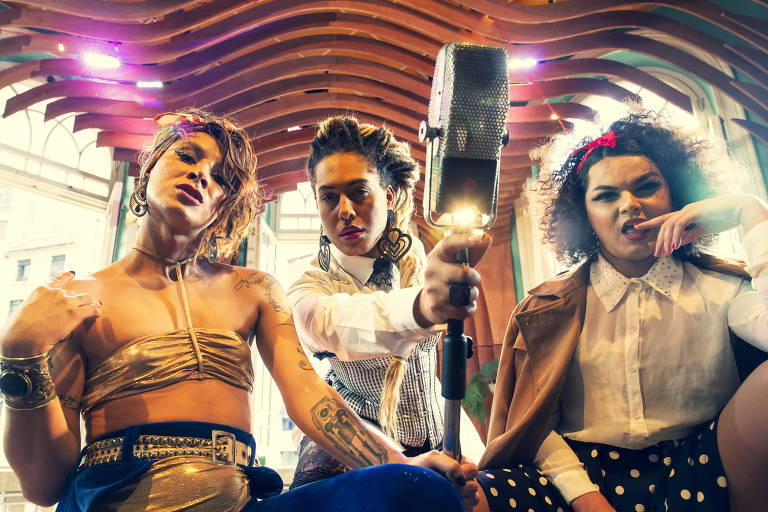A new kind of voice is taking the Brazilian stages and airwaves. It is a group made up of transgender and gender-fluid singers, and their voices also break with traditional gender rules. They are performers like Verónica Valentiino, Linn da Quebrada, Liniker, as well as the lead singers of band As Bahias and a Cozinha Mineira and the most famous of them, drag queen Pabllo Vittar.
Assucena Assucena, from As Bahias e Cozinha Mineira (The Bahias and Minas Cuisine, an allusion to two Brazilian states) says that a child, she was pressured to use her voice in a lower pitch because she was born a male. "I was taught that only girls could be high-pitched and that if you were born with a penis, you have to speak in a lower tone. But, even with a low-pitched voice, I didn't identify as that."
She also says that her family complained that she only listened to female singers, like Sandy (a Brazilian former child singer) and Whitney Houston.
Verónica Valenttino also didn't fit in the established gender and social norms. The leader of Ceará's disco-punk band Verónica Decide Morrer (Verónica Decides To Die), she was also born male, but unlike Assucena, her voice pitch has never been in the lower range, and her higher tones caused her to be bullied.
When she was studying drama, in the middle of the 2000s, she started to identify as female, a process that led her to start the band, in 2010. After a while, she decided to identify as a travesti (a typically South American trans group that does not necessarily goes through gender reassignment procedures). She defines it as "a bizarre body, in a changing state, that denies this maleness imposed to me."
"People say that, once you are a travesti, boom, you have to have a nasal voice. Of course, we start to discover a new body, a new voice, but this is not a forced thing - it is rather fluid and natural, gender-empowered," she says.
Translated by NATASHA MADOV
Read the article in the original language
